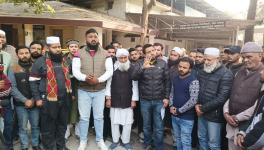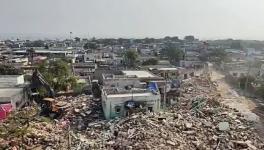Khori Gaon: A Month Since Demolition, Rehab Policy in Limbo as Residents Struggle for Survival
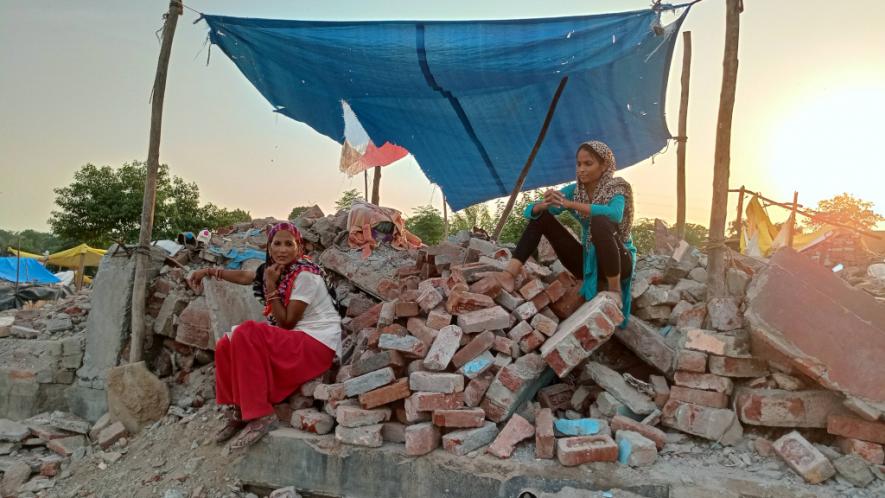
A month has passed since the process of demolition of over 10,000 houses was initiated in Khori Village on the Delhi-Haryana border. As one walks through the narrow lanes of what once used to be a sprawling residential locality, only its brick remnants can be seen all around. The residents, all of whom are migrant workers, have failed to find alternative housing in the absence of rehabilitation, with most of them camping under tarpaulin tents.
As residents grapple with no supply of food and water – let alone other services during the COVID-19 pandemic – the Municipal Corporation of Faridabad (MCF) is yet to finalise a rehabilitation strategy. While the plan announced last month stated that residents will be allotted EWS houses in Dabua Colony and Bapu Nagar, the caveat was only people with an annual income of up to Rs three lakh would be eligible for rehabilitation. Moreover, the residents cannot be accommodated in this “alternative” housing solution for the next six months. The MCF has not even issued tenders for the repair work of the flats, let alone the buildings accommodating any families.
As residents come to terms with the violation of their rights, the MCF has set up camps in the Radha Soami Satsang premises to keep a record of those making claims for rehabilitation. The facility had announced that it would provide temporary shelter and relief to the residents. However, its role remains unclear.
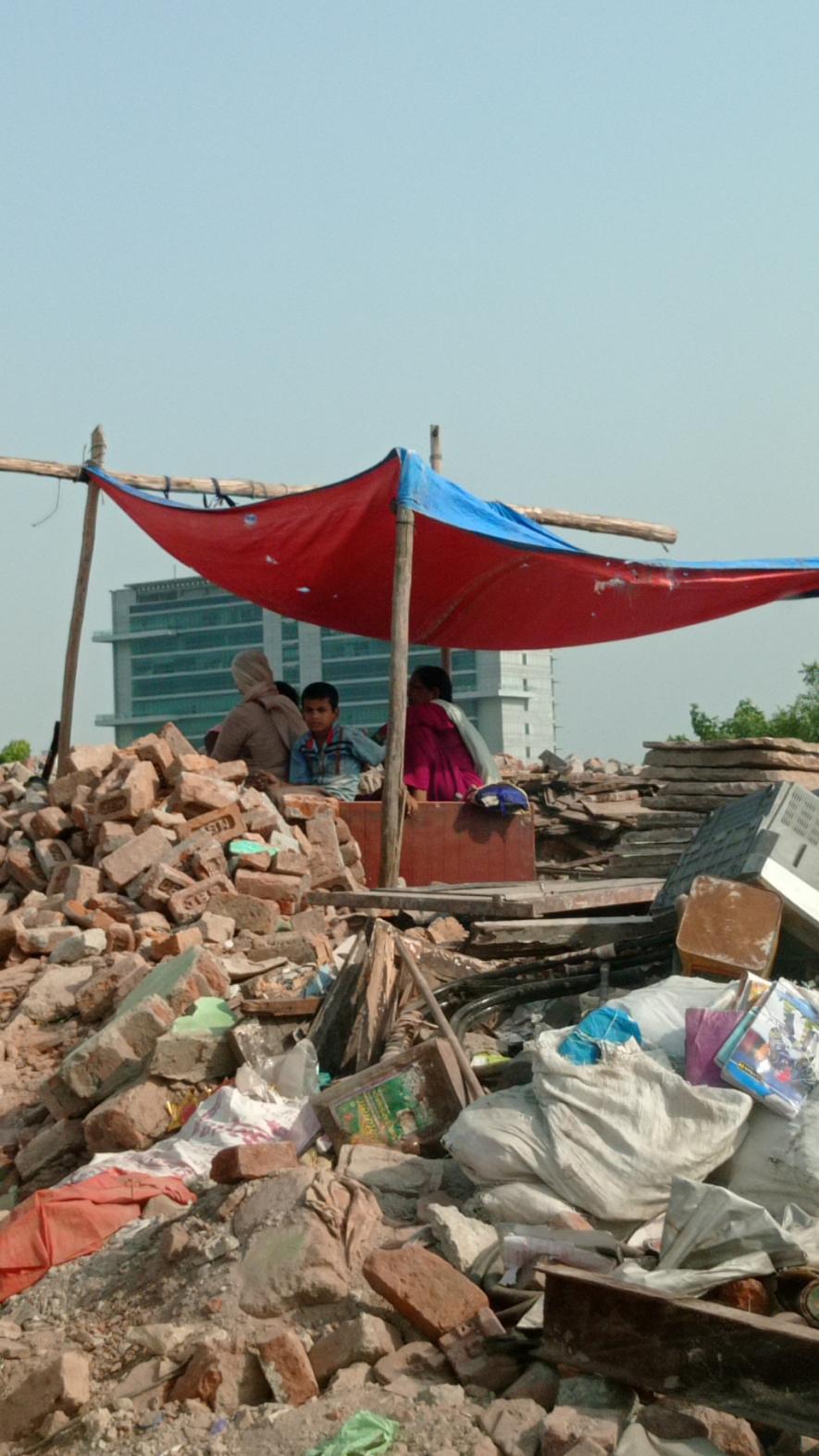
“The camp set up by Radha Soami is not a transit camp or a rehabilitation camp. It comes when the policy of rehabilitation has still not been finalised by the state; the government is instead absolving itself of any responsibility of accommodation by simply diverting people to this camp. There is no privacy; no arrangements have been made nor is there the question of dignity within the camp. What we must ask is if the camp is a formal service provider to the government and if any formal agreement has been made with the camp?" lawyer Tripti Poddar said.
Newsclick visited the camp in Surajkund to understand the arrangements – officials on site confirmed that this was not sponsored in any way by the state and that the arrangement for food was done by the centre. Speaking to Newsclick, MCF official Bhram Singh who was present at the camp, said: “Over 2,400 people have come here to file claims and submit documents for rehabilitation. As far as accommodation is concerned we only have five families living here. The food being given to the residents is charity and the state has not arranged for this.”
Researcher Ishita Chatterjee, who has worked extensively on the issue, said: “Radha Soami is a religious institution that provides food to anyone that goes there as prasad. That is what the state has been calling 'food arrangement'. However, this is not state arranged. The provision is only for a maximum of 50 families, that too under a big shed which really cannot be called a temporary shelter. It is the same place where they are provided food. The residents have been repeatedly told that this is only for a few days. Hence, most of them didn't go there as they cannot even take their furniture or other items and keep them here. Also, a few days doesn't solve the problem. It rather creates more problems."
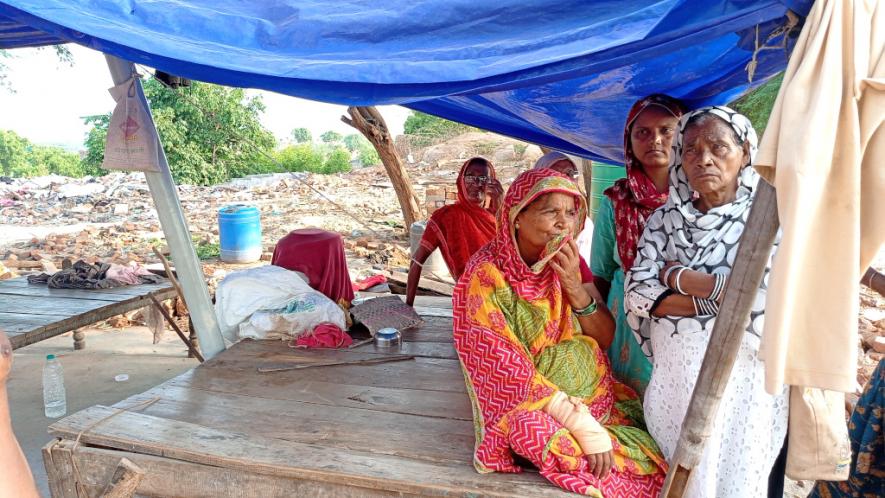
Khori housed over one lakh residents – with the number of pregnant and lactating women running in the thousands. As homes stood destroyed with nothing but rubble left behind, the issue of privacy and the safety of women has become a cause for concern.
Mumtaz, a woman in her mid-30’s who lost her home, said, “We wash ourselves in this filthy water. There is no water to cook, wash our hands or even change clothes. I fear for myself and my daughter. We are unsafe here, but we have no choice.”
When asked why the family does not move to the Radha Soami centre, she said: “There is nothing there. It is a barren ground with the same tarpaulin as we have here. What will we do there? We do not know if we will get food there. There is no privacy so we might as well stay here with the community.”
Chandini was a student in the second grade. The evictions ravaged her life. “I used to have online classes. I had friends. Now we do not know who will feed us our next meal. When I sleep I can only see bulldozers and the police. There is no light and no water. I keep seeing the demolition over and over again in my dreams," she said.
While the residents grapple with trauma and fear for their futures, the Faridabad Metropolitan Development Authority (FMDA) is planning to sow seeds in over 50 acres of Aravali land cleared of debris in Khori. There are also plans to develop the area as a city forest or biodiversity park.
Before the rubble clears out the residents are making a last ditch effort. They are selling off the remains of their homes to generate funds for food and temporary arrangements.
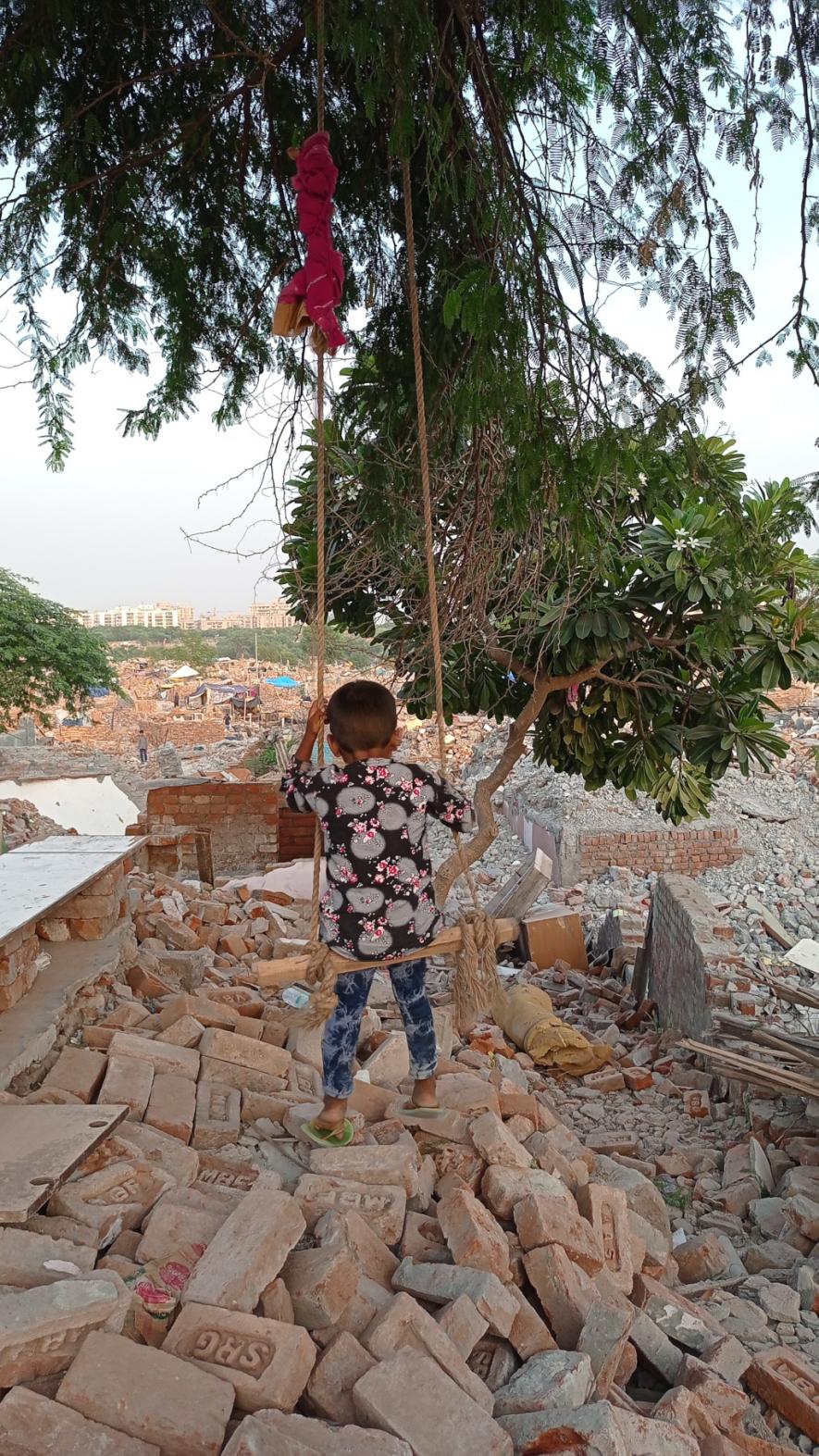
“Our faith in God, the justice system and the world is fading. People are selling off bricks of their broken homes. None of us can arrange rent or move to other areas. Bricks which are ordinarily priced between eight to ten rupees per piece are being sold off at one or two rupees. But whatever we are getting is still worth it. It will pay for our next meal or perhaps a bottle of water,” said Raju, another resident.
The residents have been protesting against the forceful demolitions since June 7, when the decision was first made to clear out the settlement. Some residents had also gathered at Jantar Mantar on Wednesday to demand that the rehabilitation policy be finalised.
Earlier, just a day prior to the demolition, a rehabilitation plan, ‘Policy for Rehabilitation of Khori Jhuggi Dwellers’, was made public by the Haryana government, which stated that residents will get alternative housing. The conditions stated that those with an annual income of up to Rs three lakh would be considered for an allotment. The plan also stated that the name of the head of the family needed to be registered in the voter list of Badkhal Assembly constituency of Haryana as on January 1, 2021; the head of the family is also required to have an identity card issued by the state of Haryana as on January 1, 2021. Another condition mandated that the family had an electricity collection issued by the Dakshin Haryana Bijli Vitran Nigam (DHBVN).
However, a month on, alternative accommodation has not been set up by the government yet. The residents were also promised Rs 2,000 a month for six months to rent a house somewhere else. As with other promises, this too stands broken.
Also Read: Khori Village: Demolitions Continue Unabated, Residents Call Rehabilitation Policy a Cruel Joke
Get the latest reports & analysis with people's perspective on Protests, movements & deep analytical videos, discussions of the current affairs in your Telegram app. Subscribe to NewsClick's Telegram channel & get Real-Time updates on stories, as they get published on our website.











